Love is a strange bird. It both comes naturally to us and feels difficult to understand wholly. The same holds true for relationships — random relationships, like the one with a co-passenger on a long train journey, and meaningful conscious relationships, like the one with your life partner.
We, both, instinctively make connections with people around us, as well as spend ages trying to figure out why it is so difficult to understand someone and be understood. At its core, love is easy. But we must learn to love ourselves, as well as others. When in a fight with someone, should you take your own side or should you take theirs? Should you love yourself or should you love them? Should you be independent or should you attach?
Love and life are filled with such contradictions. Do you find yourself often wondering about these questions? Do you feel excited to look for answers? It is exactly this awareness, or this deliberate quest to have a fulfilling life with your partner that is the cornerstone of building a conscious relationship.
What Is A Conscious Relationship?
Table of Contents
It is easy to understand conscious relationships if we, for a second, look at the word “conscious”. To be conscious is to be awake and to be aware. It also means to have the knowledge of something. It means to make a choice.
Conscious relationships are just that! They are relationships developed purposefully. In conscious love, partners make a conscious choice to create a meaningful bond. This bond must be at the service of both the partners as a unit as well as to each one of them individually.
Through the years, the nature and the purpose of relationships have changed very much. For instance, our expectations of marriage and committed partnership have increased many folds. Where earlier, the need of an individual from marriage was limited to basic needs such as food, shelter, safety, security, physical need and social approval. Now, what we seek from our relationships is much more.
To understand what gets us going, what drives us to take action, American psychologist, Abraham Maslow, created what is called the hierarchy of needs of an individual. He put our basic needs such as food and shelter at the base of a pyramid and went up the pyramid with more emotional needs such as love, friendship, esteem, belongingness.
At the pinnacle of this pyramid sits the need to achieve “self-actualization”. This is the highest point in the growth of an individual, characterized by the desire to achieve one’s full potential.
Conscious relationships are the ones that not only allow you to achieve your highest need of self-actualization, they actually motivate you and support you in being your best self. They motivate you to always pursue your highest spiritual need and allow you to grow and shine as an individual. Yes, it is that simple!
Related Reading: Are You In A Relationship Or Partnership? 6 Pronounced Differences
What Are The Qualities Of A Conscious Relationship?
Talking about the contradictions in life, conscious relationships are both easy to understand as well as too vast to capture in a few words. As a baseline, what we just discussed, is exactly what captures the soul of conscious relationships. But there is also so much that can describe how a conscious relationship looks, how to identify and develop one and what are its qualities.
1. Conscious relationships are intentional
Every decision in a conscious relationship is intentional. To love is intentional. As is to feel anger or disappointment. To communicate your feelings or grievances is intentional as is to practice silence. To come together on a decision is intentional as is to have differing viewpoints. To grow something together is intentional as is to have personal projects.
In contrast, two people stay together in an unconscious relationship not because of a decision to be together but because of a lack of decision to not be together. Life in an unconscious relationship is reactionary. Problems are usually pushed under the carpet. Life is just lived. No deliberate thought or effort is made to understand the purpose of relationships.
Take, Sam and Elisa. They have been married for 14 years. They wake up and get into the rhythm of their lives. Both together and separately. Neither of them is cheating on the other. Both love their two children. And they sincerely believe they love each other too.
But they are mostly unaware of each other’s daily struggle for existence. Sam hasn’t told Elisa about the midlife crisis he feels these days. He hasn’t told her that he has begun to feel unattractive. Elisa hasn’t had the chance to tell him that she feels the same. That she also feels stagnated at work. And sometimes she wishes to have a room of her own and in it, a desk, that’s just her own.
In a conscious relationship, Sam and Elisa would have taken the time to prioritize their own feelings over anything else. The intention to be even happier and more fulfilled in their relationship would have pushed them to take time out to communicate these desires with each other. They would have taken steps together to give each other the motivation they needed and the space to resolve these issues.
Being conscious and aware of what is working and what is not working in a relationship and then taking deliberate steps toward happiness is one of the most prominent qualities of a conscious relationship.

2. Conscious relationships are growth-oriented
All relationships are marked by challenges. Each one of us comes with some baggage. We have our triggers, our ways of dealing with conflict, and our ideas of self-preservation. Which is why we all deal with conflicts differently. This causes friction in relationships.
But only a conscious partner looks at a challenge and sees it as an opportunity for growth. A conscious relationship is not conflict-free. It has a growth mindset at its center. Growth in a relationship is the desire to learn to be better. A conscious partner sees challenges as an invitation to come together, collaborate and resolve problems together. They anticipate challenges as steps of growth in a relationship. For example, an instance of financial incompatibility is an indication to seek more financial education together as a couple and come to a common financial value. It could be an opportunity for growth.
Talking about growth, partners in conscious love also motivate each other to have a fulfilling life, whatever its definition may be for each person. For someone, it could be being more well-read or taking out time to engage in social work. For another, it could be becoming better at an old hobby. For someone else, it could be wanting to work harder at their job to get a promotion. For yet another person, it could be fixing that chronic backache.
Point is, as individuals, we all have the desire for achieving our full potential. Having a better life, or being better at something. A conscious relationship gives each partner the motivation, and the space to grow.
However, having a growth mindset doesn’t mean to over-emphasize it. Pushing each other and being pushed can be exhausting. Having a space to be comfortable and be yourself is also equally important. Growth in a relationship happens organically, without the need to make your partner or yourself uncomfortable. Be aware of your emotions and you should be just fine!
Related Reading: 9 Ways To Practice Mindfulness In Intimate Relationships
3. Radical responsibility – A conscious partner takes responsibility for themselves
Radical responsibility means to take responsibility for who you are, what you do, what is done to you, and what gets done because of you. It simply means to take 100% responsibility for yourself.
In conscious relationships, you take ownership of what you want and what you need. You do not blame others for the shortcomings in your life, instead learn how responsibility can be taken in a relationship in different forms. However, this should not be misunderstood as never coming to a compromise or never prioritizing your partner’s needs when you feel it is important.
Consider Dani and Jo. They felt frustrated in their marriage and visited a therapist. At the therapist, Dani and Jo both complained of the sacrifices each of them was making for the family. Dani said that she no longer found time to even take a walk by herself as she used to all her life because she has to make breakfast for the kids in the morning.
Jo said similar things about not finding enough time with her. And how they never go on the kind of vacation that he wants. Or how he had to give up a promotion because it would have required him to be away from the family.
With the help of counseling, Dani and Jo saw that they weren’t taking responsibility for their needs. The therapist made them see that only they knew what was non-negotiable for them, and what they didn’t mind giving up or changing for the love of their partner. It allowed them to ask each other for the things that were most important to them.
Jo never knew that Dani needed the walk so much. Dani said she didn’t even care about the vacation destination and didn’t know how much it mattered to Jo. Jo said that he actually feels proud of the job sacrifice he made to be a better father.
All in all, taking responsibility allowed both Dani and Jo to be intentional with the choices they were making. If something was non-negotiable, it allowed them to lay it down straight in front of the other partner. Together, they could come up with how to make it happen. And if there was something one of them was sacrificing for the good of the relationship or the love of their partner, it allowed them to take ownership of that choice, without feeling like a victim.
4. Conscious relationships give space to be autonomous
Like all the dichotomies in life and relationships, this one too is a hard nut to crack. Our need for independence vs our need for intimacy. There is a thin line, and only with conscious awareness can two people efficiently create a balance between the two.
Conventional ideas of relationships do not support, or at the very least do not emphasize, the idea of autonomy. Romanticized ideas of relationships perpetuate codependence. Have you heard of the fairy-tale idea of the “merging of two souls”? While trying to highlight the togetherness of two people, we tend to glorify “sameness”. Individuality is lost when two people try to become one.
Codependency in relationships creates an illusion of safety, which is why most of us in conventional relationships subconsciously fear the idea of autonomy. Autonomy gives the right to not only be independent with seemingly insignificant things in life but also gives the right to choose.
To choose to be or not be in the relationship. Like all higher values in life, this one too is not convenient to adhere to. But for people seeking higher goals such as achieving their true potential and making their life meaningful, a higher value such as this one is extremely valuable.
It is important to note that autonomy should not be seen as a means to undervalue togetherness. In fact, conscious relationships highly value togetherness as well. What autonomy is against is the idea of merging, and therefore, loss of individual identities. Autonomy is against taking each other for granted by giving each partner the right to choose what is best for them. It pushes you to make a daily commitment of giving your best to your relationship and nothing less.

5. Conscious relationships practice love
Love is a practice. Yes, love is also the ecstatic feeling that we feel when everything with our partner seems to be going well. But, it is also a practice. Everything that we do to be able to achieve this feeling is the practice of love.
In conscious relationships, two individuals take several steps to nurture their relationship from the very first day of conscious dating. One of those is communication. Partners who practice conscious love step out of their comfort zones to ask for the things that are important to them. They also create a safe space where each one can express whatever they want without the fear of being judged or being misunderstood or ‘causing unnecessary drama.’.
Another such practice is being present in the relationship. Relationships don’t always break down because of affairs or challenges. They can also break simply by the breakdown because of a lack of closeness and connection. Practicing being present for your partner and your relationship is an attempt to maintain that connection so the two of you can take up any challenge together.
Practicing being present can mean different things in different relationships. But it mostly means to be actively interested and invested in the relationship. It may mean spending quality time and being alert and engaged during that time. It may also mean listening and providing your partner with what they need during their time of crisis.
Appreciation is another way to practice love. As humans, ‘negativity bias’ comes naturally to us. Therefore, appreciation must always be intentionally practiced. We tend to overemphasize the issues we have with our partners and undervalue how they make our life easy and beautiful. Mindfully practicing appreciation also helps by positive reinforcement. Which means that once you are appreciated, it drives you to be better and do more. The same for your partner.
Related Reading: 10 Ways To Shower Appreciation On Your Husband
How To Create A Conscious Relationship With Your Partner?
To create a conscious relationship, commit to being intentional with your vision and your goals. Here’s how:
1. Recognize your vision
Figure out what you want or how you envision your relationship. What does a committed partnership mean to each of you? Do you share a common vision of the fundamentals of commitment in a marriage? What does a happy life look like to you, both as an individual as well as the half of a whole? Come together to discuss it.
Verbally, and through your actions, express to your partner your commitment to this kind of a connection. Tell each other how much it means to you. In conscious dating, you make the effort from the very beginning to allow the trust to develop.
2. Discuss your values
Recognize and talk about the most important values for each one of you. Discuss ideas rather than issues. Become aware of each other’s thought processes.
For example, what matters most to you when you are in a state of conflict. Or, what are your thoughts on monogamy, are we naturally monogamous? Or, what is the purpose of relationships? Or what is better, a bitter truth or a compassionate lie? These discussions are not to create conflict but to become aware of each other’s values.
3. Develop some guiding principles
Have some agreements and ground rules. Or better still, let us call them guiding principles. Discuss the non-negotiables. These would be unique for each relationship. They could be things like:
- Having a safe space for communication without fear of rejection or anger
- Seeing each other through compassionate eyes
- Acceptance and appreciation
Feel free to change or add to these. You could have something similar as per the needs of your relationship.
The heart of the matter is to be intentional. That is the central idea of conscious relationships, along with valuing individuality, open communication, and nurturing each partner’s individual growth. So, every step you take mindfully toward the betterment of your relationship is a step toward developing qualities of consciousness and a conscious relationship with your partner.
Do remember, conscious relationships are non-prescriptive. Which means, there is no telling you what exactly to do. Be conscious, be aware. Perceive what your relationship is hungry for. And provide it with just that. Like Dani and Jo, take support from professional counselors who can help you in this pursuit.
FAQs
The conscience is the moral center of an individual, that tells you wrong from right. It is that gut feeling that guides you toward doing the right thing all your life. Letting your conscience lead you when you are engaged in conscious dating, makes you do what is best for your relationship.
A good relationship is hard to summarize in points. If it makes you feel good about yourself, about your present life and hopeful about your future, it must be a good relationship. If we had to answer this one, we would highlight mutual respect, trust and honesty, great ongoing communication, and space for individual growth as four of the many qualities of good conscious relationships.
Falling in love is a conscious choice and a conscious action. As it should be. Love is a practice that needs constant action from your side to nourish.
Your contribution does not constitute a charitable donation. It will allow Bonobology to continue bringing you new and up-to-date information in our pursuit of helping anyone in the world to learn how to do anything.





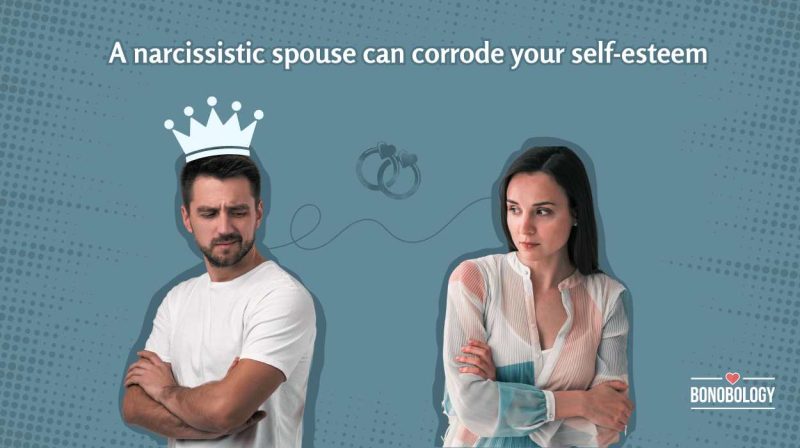
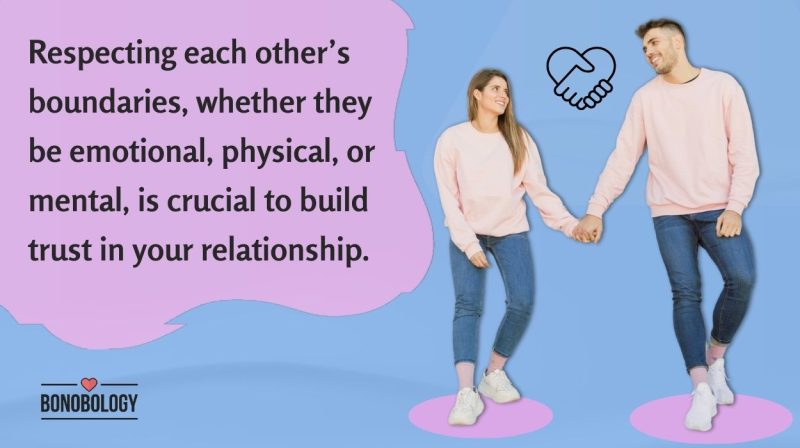

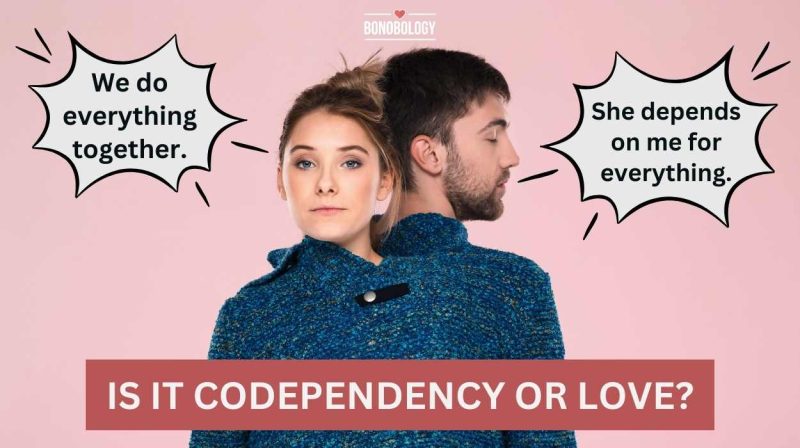

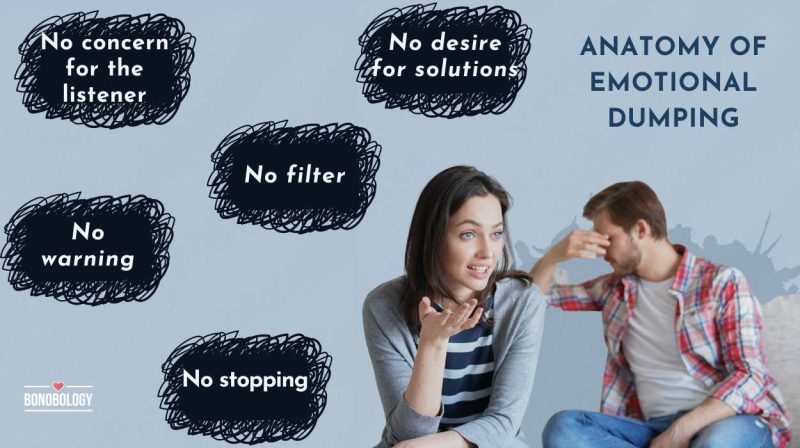
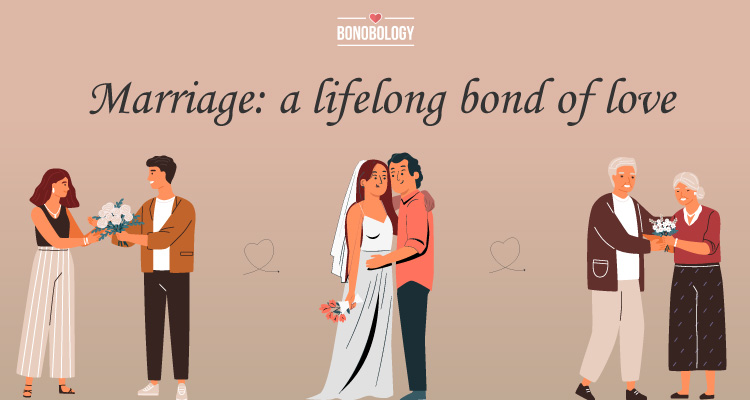





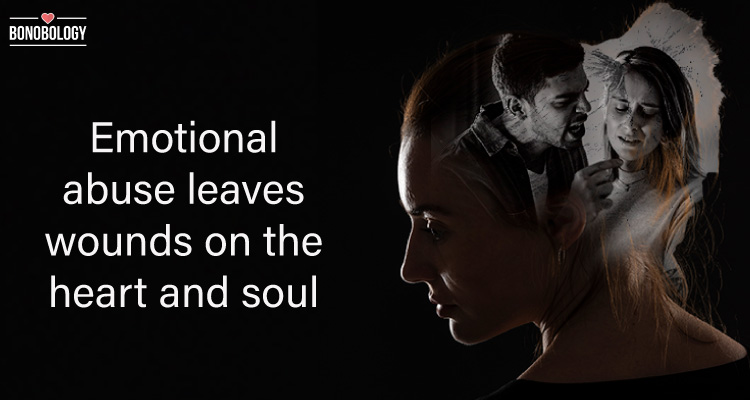


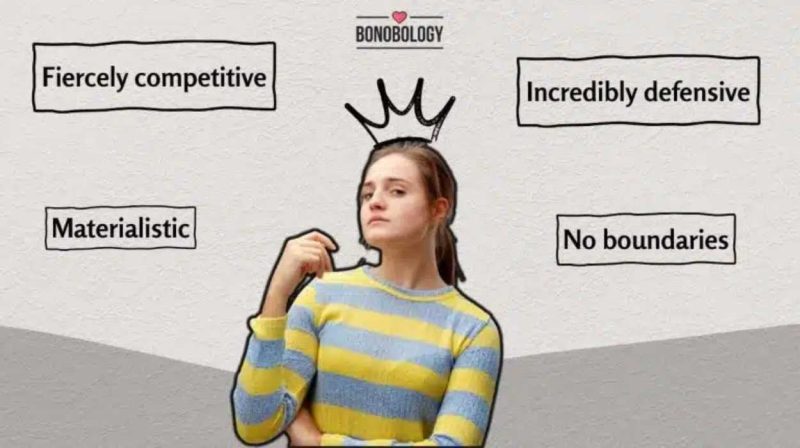
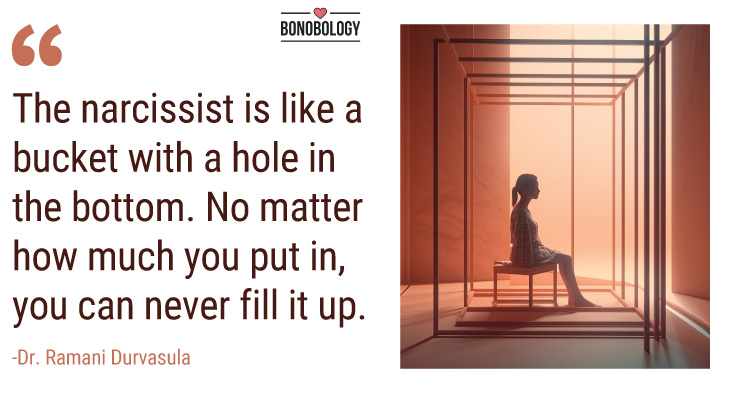

Featured
50 Questions For Premarital Counseling To Prep For Marriage
Why Is Marriage So Hard? Reasons And Ways To Make It Worthwhile
15 Signs Of Being Married To A Narcissist And How to Cope
Building Healthy Boundaries: The Key to Trust and Respect in Relationships
How To Deal With A Negative Spouse – 15 Expert-Backed Tips
What Is A Codependent Marriage? Signs, Causes, And Ways To Fix
7 Signs You Have A Verbally Abusive Wife And 6 Things You Can Do About It
Emotional Dumping Vs. Venting: Differences, Signs, And Examples
Husband Wife Relationship – 9 Expert Tips To Improve it
12 Hurtful Things You Or Your Partner Should Never Say To Each Other
7 Expert Tips To Resolve Conflict In A Marriage
Rediscover The Spark: How To Fall Back In Love With Your Partner
3 Key Skills To Save Your Marriage & Stop Divorce
Roommate Marriage – Signs And How To Fix It
What To Do When Your Husband Belittles You
How To Deal With A Lying Husband?
Why Am I So Depressed And Lonely In My Marriage?
11 Signs You Have A Narcissistic Wife
21 Signs Of A Narcissistic Husband And How To Cope
7 Fundamentals Of Commitment In A Marriage